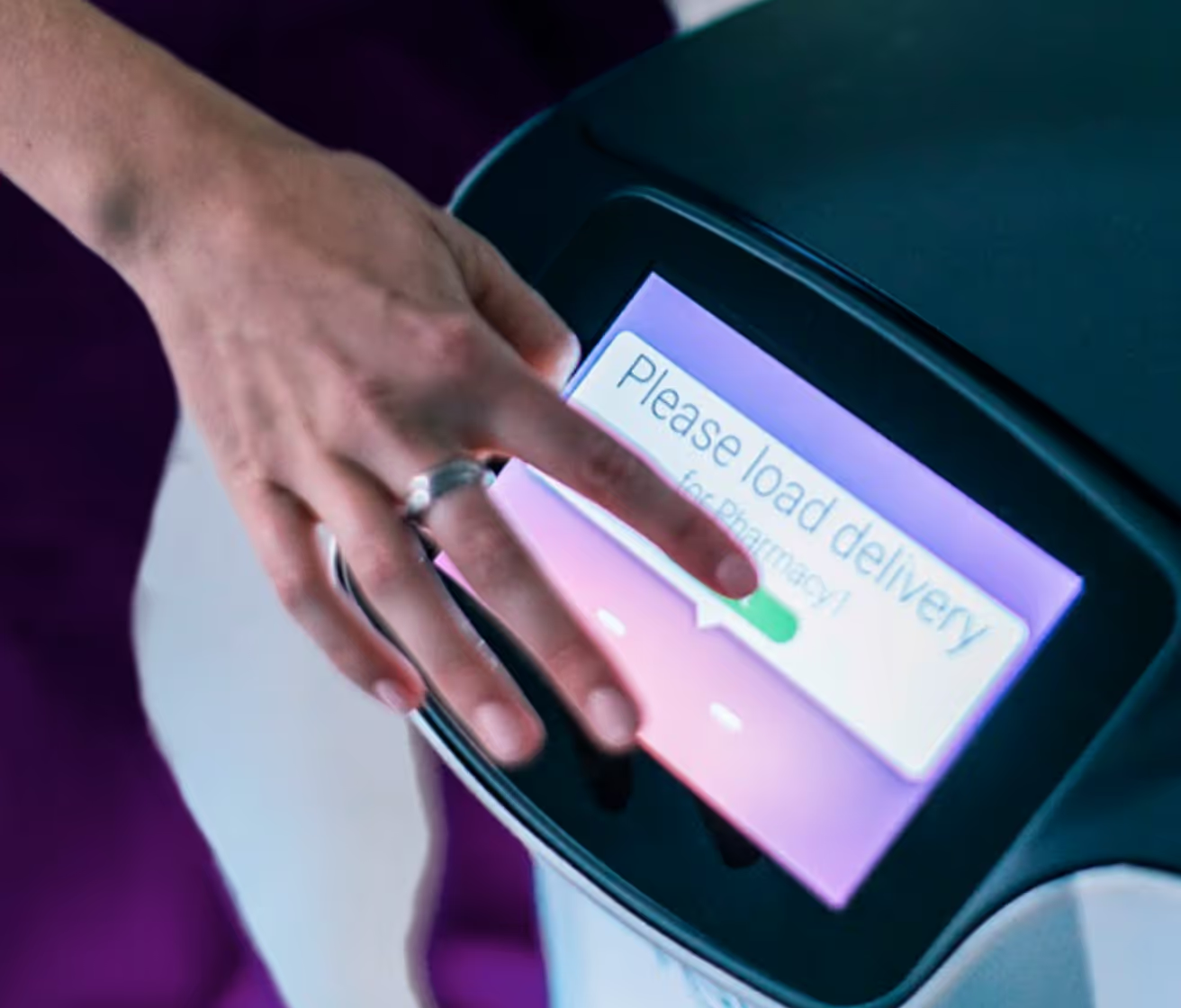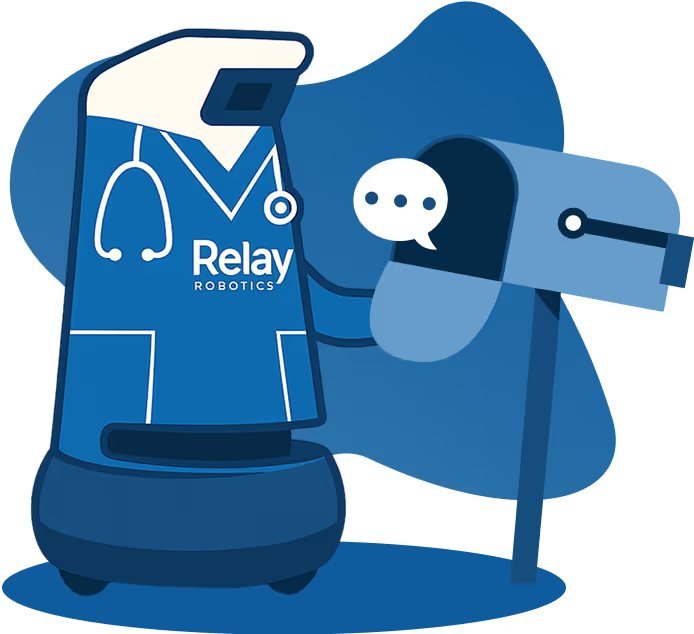
Leading Hospital Systems Trust Relay
Empower your hospital staff - we do the non clinical work so your staff focuses on patients
Relay's hospital robots take care of non clinical deliveries so that nurses focus on clinical work focused on patients.
Leading hospitals have deployed Relay Robotics robots to help their staff and patients.

See Delivery Robots in Action
Enhance Productivity
and Care Quality
Key Benefits of Relay Delivery Robots
Boost staff efficiency, productivity, and job satisfaction
Reduce staff burnout and churn
Safely and reliably transport items fully autonomously
Navigate crowded areas, security doors and elevators
Easy to use and scale for a positive ROI
1,000,000+
25,000+
10,000+
99.8%

Answers to your most pressing questions
Relay robots are equipped with an advanced sensor suite that includes cameras, lidars and various other safety sensors. These sensors continuously scan the environment and form a high quality dynamic map of the surrounding area. This gives the robot exceptional spatial awareness and allows it to plan a safe path through all obstacles and people. Even sudden changes like a child abruptly jumping onto its path appears on this map prompting Relay to respond within milliseconds.
Relay’s authentication options provide pharmacists with a verifiable trail for every medication delivered throughout the hospital. Additionally, sophisticated software and “Uber-like” maps show real-time delivery status while tracking and reporting delivery history.
Every Relay comes with a charging dock that can be placed strategically at the site. As Relays go about their tasks, they are continuously monitoring their battery levels and are always recharging between deliveries such that the battery rarely runs low. however, if the battery is low, they autonomously navigate to the dock and automatically dock themselves until charged.
During installation, elevators are configured to communicate with Relay robots. This allows them to call elevators, select their destination, enter and exit the elevators, and complete deliveries without any need for human intervention.
Relay has a 10 gallon capacity, multiple insert bins of various sizes and delivers lab specimens, medications, medical supplies and food throughout hospitals and room service items in hotels.
The robot bin temp stays 1 degree over/under ambient room temperature. For warm or cold items, the interior bin offers some insulation that can maintain temperature during item transportation to its destination.
The cost Relay delivery robots varies in function of the complexity of the deployment, the number of floors to navigate and the amount of robots. Please contact our sales team for a customized quote tailored to your use case.
Call 408-809-5600 or contact info@relayrobotics.com










